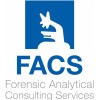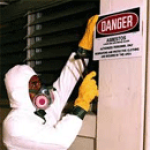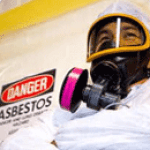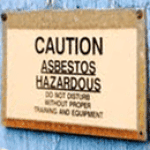07-06-2023 - Asbestos Operations and Maintenance Initial - Concord, CA
Training Provider: FACS Training
Dates: TH Jul 06, FR Jul 07 from 8:00am to 4:00pm
Location: Concord, CA
 No Reviews
No Reviews
We're sorry, but registration for this event has ended
View Upcoming Asbestos Operations and Maintenance Initial In Concord, CA| TICKET TYPE | PRICE | QUANTITY |
|---|---|---|
|
One Workshop Ticket more info» | $275.00 | Registration Ended |
| Registration Ended | ||
Why Should You Take This Asbestos Operations and Maintenance Initial Course?
This Asbestos Operations and Maintenance Initial training accredits individuals to perform operations, maintenance and repair activities which may disturb minor quantities of ACM, PACM or asbestos material. This course is designed primarily for custodial and maintenance personnel and individuals in the building trades. Operation and Maintenance certification permits the holder to perform OSHA Class III & IV asbestos work only on minor asbestos projects. Minor asbestos projects must be associated with repairs required in the performance of emergency or routine maintenance activity, and is not intended solely as asbestos abatement.
Class III Asbestos Work – repair and maintenance operations, where ACM, including TSI and surfacing ACM and PACM is likely to be disturbed.
Class IV Asbestos Work – maintenance and custodial activities during which employee contact, but do not disturb, ACM or PACM , and activities to clean up dust, waste and debris resulting
from Class I, II, and III Activities.
Training for asbestos abatement professionals is required under the Asbestos Hazard Emergency Response Act of 1986 (AHERA), which is the authority under which EPA issued the EPA Asbestos Model Accreditation Plan. This course has been granted full approval by the EPA and various States to meet AHERA and ASHARA accreditation requirements for asbestos work in K-12 schools, as well as in public and commercial buildings.
An Operations & Maintenance worker shall have a valid Operations & Maintenance certificate and must have their certificate or a copy of their certificate with them at all times while working on the project. This workshop prepares you to immediately apply your knowledge to the field, with extensive hands-on training and real-world examples from experienced instructors. It combines lectures, discussions, and hands-on demonstrations.
The Following Topics Will Be Covered:
- Background Information on Asbestos
- Potential Health Effects of Asbestos Exposure
- Identification and Location of Asbestos
- Federal and State Regulatory Review
- Personal Protective Equipment
- Personal Hygiene
- Work Area Preparation
- Decontamination Systems
- Work Practice Standards
- Safety and Health Hazards
- Occupant Relations/Safety
- Glovebag Techniques
Please Note: Your state has detailed education, experience and application processing requirements to qualify for licensing in the Asbestos field. Most states administer their own asbestos programs, and each state's Department of Environmental Protection/Health is generally the best place to start with questions about requirements and training. Students are responsible to verify these requirements prior to registering for a course.
| COURSE LOGISTICS | |
|---|---|
| Certificates | Certificates are emailed within one business day of completion of the class and passage of applicable tests. Refresher students must provide copies of most recent certificates to FACS Training prior to the class date to receive new refresher certificates. |
| Parking | No |
3498 Clayton Rd # 201, Concord, CA 94519
TH Jul 06, FR Jul 07 from 8:00am to 4:00pm

FACS Training (formerly HMS, a division of Forensic Analytical Consulting Services) has helped construction managers, building owners, facilities managers, architects, contractors and consultants handle hazardous materials safely AND legally (two different issues) since 1984. Our instructors are active consultants, contractors, or EH&S personnel, most with more than 25 years of hazardous materials experience Many have been actively involved in developing the original curriculum for UC Berkeley’s highly respected asbestos and lead training program in the late 1980s, and in revising and generating local, state, and federal environmental regulations during the past four decades. Our classes use interactive teaching techniques and emphasize applying up-to-date knowledge and research (about health effects, regulatory and legal trends, and best industrial practices) to actual situations our students face. In every class, genuine case studies and discussion of participants’ on-the-job experiences help you develop practical responses to real-world problems and avoid costly mistakes.

Questions? 954-400-0595


